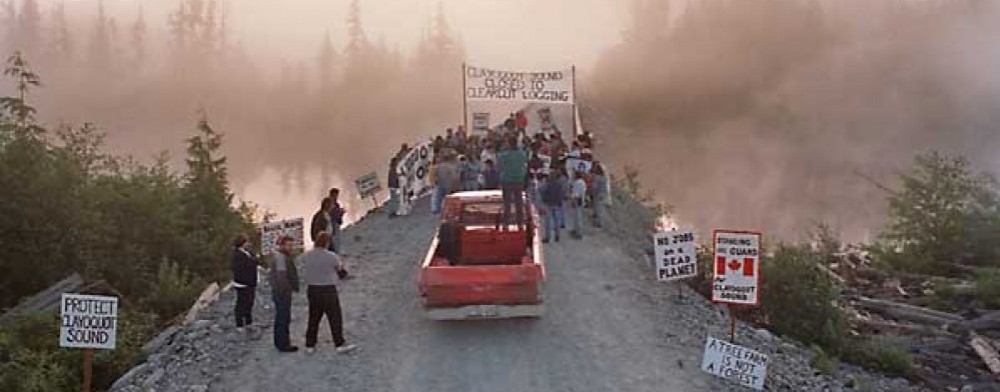In his work, If this is your land, Where are your stories? J. Edward Chamberlin emphasizes the contradiction at the heart of the concept of ‘Home.’ He writes, “Home is always border country, a place that separates and connects us, a place of possibility for both peace and perilous conflict” (Chamberlin 3). I feel that understanding Chamberlin’s concept of home as one of inherent contradiction helps us think through the problematics associated with our stories of home. “Home both binds and liberates us,” (Chamberlin 76) writes Chamberlin. In thinking about the ways in which we make sense of Canada as our home, I find this statement instructive. As Chamberlin articulates- stories of home shape us. It is through stories of home, of belonging, that we come to understand ourselves. As children, it is through understandings of home that we first come to understand the world. “Home” allows us to pinpoint ourselves on a conceptual map, to overlay an orderly schematic onto on an otherwise unruly understanding of self and world. It this sense we could say that home “liberates” us. It plays a fundamental role in the formation of our sense of self. However, as Chamberlin writes, these internalized narratives of home also bind us. They bind us to both a psychic and physical geography that risks eclipsing the psychic and physical geo-narratives of others who do not share our own. They bind us to a story of “belonging” that risks, (most likely without our awareness) perpetuating a binary of those who belong versus those who don’t. This fraught notion of home as one of both emancipatory as well as dangerously limiting dimensions, takes on new urgency in the light of Canada’s colonial history. The contradiction that Chamberlin identifies at the heart of ‘home’ aptly speaks to the feeling of unease held by many Canadians of European heritage. How am I, as a Canadian of European descent able to reconcile the fact that my narrative of home, in all the ways in which it has come to define me, is implicated in the erasure of the home narratives of others? Or as Chamberlin puts it, how do you come to terms with the way your nation’s narrative of home is implicated in a “history of dismissing a different belief or behaviour as unbelief or misbehaviour” (78). Perhaps, according to Chamberlin’s views on contradiction, home must necessarily exist in a state of tension and paradox. Perhaps this keeps us from getting too comfortable with notions of home. Maybe home needs to be perpetually held in a state of questioning to ward off the possibility of re-inscribing the “belief/unbelief” binary. In his work, Deactivated West 100, Don McKay writes, “stories… have beginning and ends we can count on; they create little homesteads for us that, whether inflected comically or tragically, colonize flux” (McKay 44). This metaphor of story as “homestead” is one which I think serves this discussion quite well. I think that Chamberlin’s idea of ‘home’ as contradictory cautions us against the “homesteading” impulse in our own narrativizing surrounding ‘home.’ By embracing the contradiction at the heart of ‘home,’ by understanding the ways in which home both “liberates” and “binds,” we take a stance against the colonization of other people’s stories by our own stories.
Click to see a quick video of Don McKay reading from his work “Strike/Slip”
(Chamberlin also gives a thorough discussion of how our narratives of home are steeped in a legacy of inclusion and exclusion, of belief and unbelief, of barbarian and civilized. His commentary made me think of the poem “Waiting for the Barbarians” by C.P. Cavafy. The artificially constructed nature of these binaries, and the ways in which they serve the ideologies of the powerful is illustrated in this poem.) Cavafy link
Works cited:
Cavafy, C.P. “Waiting for the Barbarians” from C.P. Cavafy: Collected Poems. Translated by Edmund Keeley and Philip Sherrard. Translation Copyright © 1975, 1992 by Edmund Keeley and Philip Sherrard. Reproduced with permission of Princeton University Press. Poetry Foundation.org. Accessed May 21 2015. Web.
Chamberlin, J. Edward. If this is your land, Where are your stories?. Toronto, ON:Vintage Canada, 2003. Print
McKay, Don. Deactivated West 100. Kentville, NS: Gaspereau Press, 2005. Print.

Hi Avery, Just a quick note – can you please also provide the 3 of the question you are answering at the top – thanks. Erika
One more note – this is a really excellent exploration of my questions; insightful and so nicely expressed, thank you.